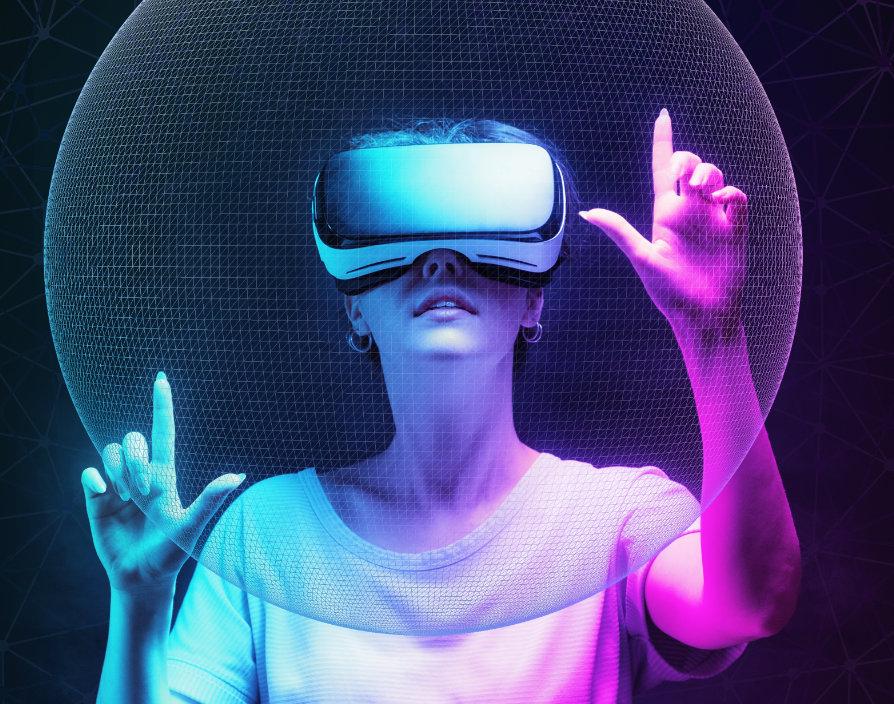The creator economy is a digital ecosystem that allows creators and influencers to earn revenue through their creations online. YouTube, Tiktok and Facebook have a system for paying creators for producing and sharing content on their platforms – and it’s a highly lucrative market that grew from $193.52 billion in 2022 to $231.1 billion in 2023.
Creators have the opportunity to produce content and make revenue through their favourite games too by streaming through Twitch, YouTube, Facebook and the newer Kick.com, as well as creating and sharing content through the games themselves by making in-game assets.
Why is the creator economy so important?
Until the Industrial Revolution, we were all creators and designed and created everything we used and consumed. The desire to be a creator is built into us and is an extension of our personal and cultural identity. In today’s economy, a high percentage of marketing happens on social media so not only is it an incredible potential source of revenue and activity, but it is also necessary for marketing effectively.
Additionally, the Creator Economy is likely to unlock the 30% platform fees and the 30-70% discovery fees. Redistributing those will have a huge impact on the growth of the western economy and create a foundation for the younger generation to prosper within the digital economy.
What role does the metaverse play in the creator economy?
The 3D world-based format is the ultimate extension of the digital social language and introduces a rich variety of revenue streams and asset formats to the digital economy such as digital clothing and accessories. But this creator economy can only flourish if the platforms that are the gateways to social interaction actively foster creativity rather than crush it.
I predict that there will be a transition from where we are now with our “feudalistic” economy – where cash value is locked in with big tech platforms – to more of a free market. The historical end of the feudal system created enormous economic wealth in Europe and I’m hoping for the same kind of disruption now.
This desire for change already exists, and we see it reflected in the web3 movement, in the evolution of the metaverse and in conversations around decentralisation. Reports about professionally employed creators being the driving force behind metaverse adoption only tell one part of the story. In reality, it will be the mass creation of user-generated content (UGC) that will drive and shape the future of the metaverse. It makes sense – it’s a combination of mixed reality, simulated environments and digital twins but, primarily, at its core, the metaverse is inherently social. Users create digital identities for the purpose of connecting with one another so, logically, it would be shaped around people, their audience, and the quality and value of the content they create.
What we hope to see with this shift in content creation from developers to users is a seismic shift in value, where rewarding these socially driven creator communities provide greater control and more compensation, which in turn incentivises users to spend time cultivating a great portfolio of content. Incentivising, rewarding and encouraging is something we can already see taking shape in existing metaverse gaming projects. As we at Lockwood Publishing look at the future development of Avakin Life, we are heavily investing in UGC – creating a virtual world where players will develop their own items and assets, with the platform actively encouraging these activities. We have already hosted iterations of Avakin Rewind – our “love letter to the community” – to celebrate creator’s passion and creativity for that reason. We now need to make the UG element intrinsic to the product, not just something peripheral.
With that being said, there needs to be a reasonable way into the creator economy; for many, the barrier to entry is exceedingly high. While the likes of Epic and Roblox are making some limited and inherently web2 moves towards compensating creators for their efforts, the most prominent platform players, Apple and Google, hold the biggest market share and sit at the top of a very lucrative pyramid. Currently, developers have to pay them 30% on any in-app purchases as well as pay for the installs and other associated fees. The role that we need to play as an industry will first be encouraging the lowering of fees so new entries to the market aren’t immediately swallowed up by the existing monopoly. Secondly, we must find a way to encourage the re-introduction of organic discovery so users can more easily find useful and entertaining apps, even if they aren’t ranking in the top 10.
The industry has to step up as a collective to support businesses, app developers and their users if we want to play our part in encouraging and championing the next generation of creators. If we fail, we get left behind in the biggest digital economic shift in 15 years.
Share via:








































